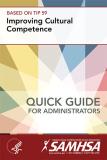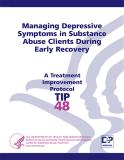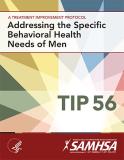
This manual for administrators describes the influence of culture on the delivery of substance use and mental health services. It discusses racial, ethnic, and cultural considerations, and presents the core elements of cultural competence.
Units per Product
Download
Quick Guide for Admins (TIP 59): Cultural Competence
File Type: PDF
File Size: 587 KB





